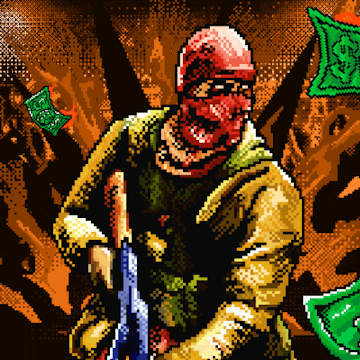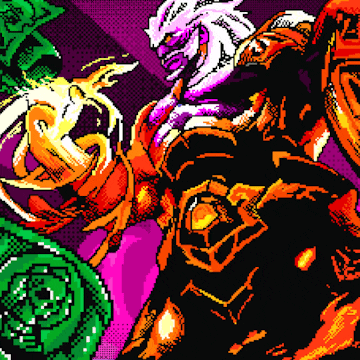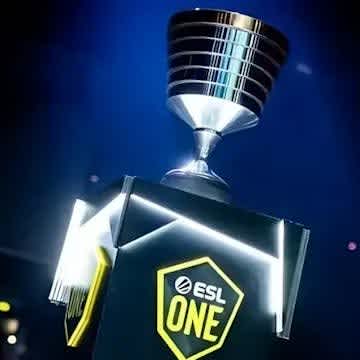Virtus.pro’s five-act tragedy
For a long time, Virtus.pro’s classic roster was uniquely effective at reinventing themselves without a roster change, ever defying the odds as they repeatedly went from slumps to highs. Their final fall was the roughest of them all, their legendary core going out with a whimper rather than a bang. This is the story of their many escapades and final collapse.
Prelude
It was a very different era to be sure, but the organization’s history goes back as far as 2003, and they’ve been involved in 1.6 featuring players like Zeus and Edward from the very beginning, a roster with constant adjustments and a move to CS:GO that would eventually put an end to NiP’s famous 87-map streak.
A short break of sorts followed in 2013 as the team disbanded, its players ending up either at Astana Dragons or KerchNET, only to return a year later with the classic quintuple we’ve all become so familiar with over the years: TaZ, NEO, Snax, pasha and byali – not exactly the Golden Five, contrary to popular belief –, looking for an organization after being dropped by Universal Soldiers.
Act One: Hometown Heroes
Just like the first major was meant to be NiP’s procession, the second one at Katowice was all about their revenge plot. Instead, it would be Virtus.pro who would take it all down in spectacular fashion, going through the qualifiers without dropping a single map and only giving up one throughout the entirety of the event with the crowd’s full support behind them throughout it all.
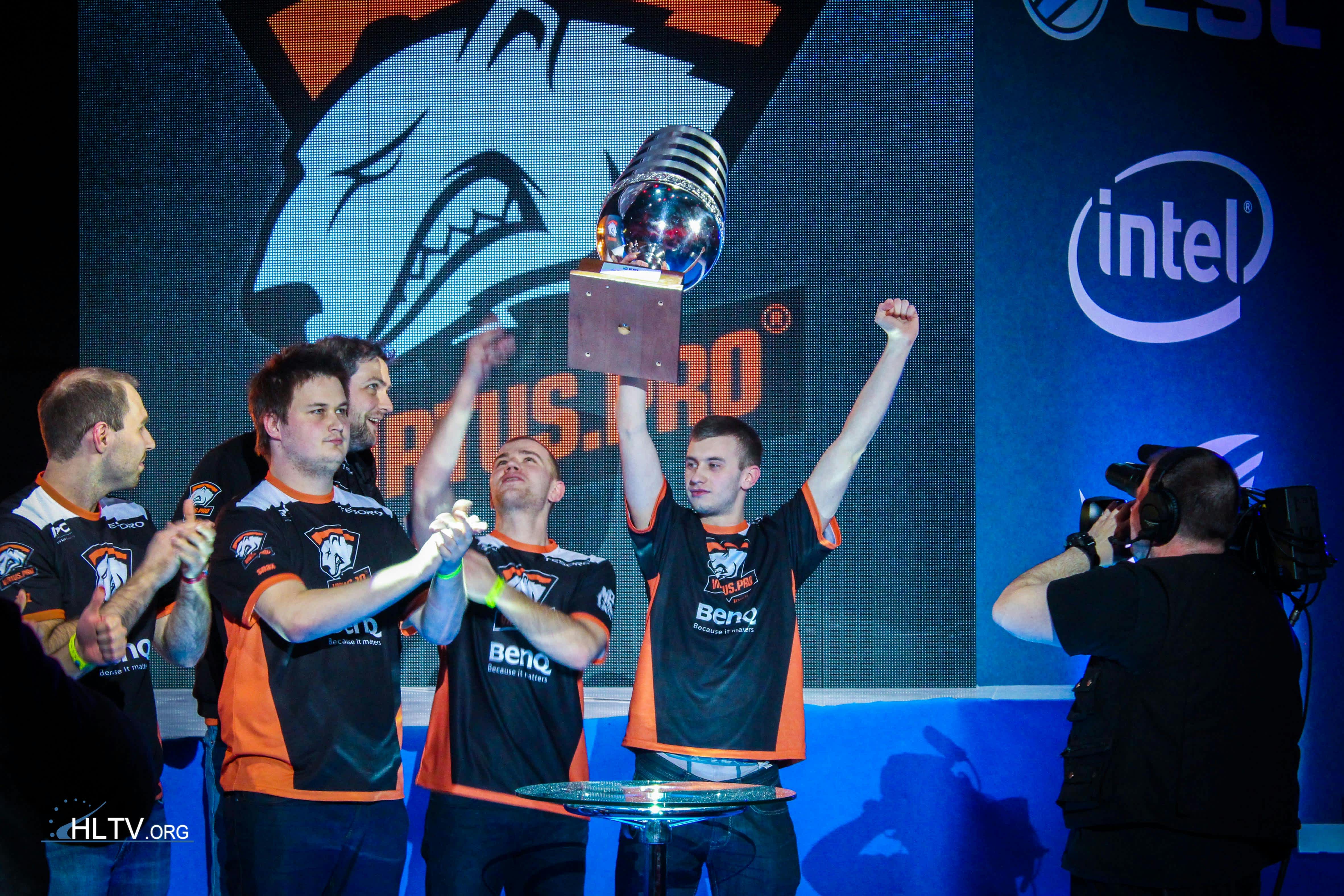
They would crack Titan – the super-team that was never meant to be – 16-7 in their group’s winners’ match and there was no turning back from there. Happy’s LDLC only got eleven rounds on two maps, LGB eSports (featuring a certain KRiMZ and olofmeister) barely picked up Mirage in overtime and even the mighty NiP would only get to double digits on one of the maps as the Poles marched on to the major trophy, dizzying heights which they’ve reached shockingly fast under the VP banner, a feat they would never repeat again despite always being there or thereabouts. Even if they would rarely be the one that triumphs at the end, they’ve remained the gatekeepers that the best of the best had to get past for a very long time.
But first, a brief intermission.
Act Two: The Keepers of the Plow
It really is a shame that there always was someone else. Fnatic, LDLC, a brief return of NiP, SK – hell, might as well include TSM and Na’Vi: all this time, Virtus.pro were the one to beat, the old money to challenge whatever the nouveau riche were throwing at them. Others may rise and fall around them but they remained one of the best teams around.
Merely glancing at a list of tournament results doesn’t tell the whole story. Even when they wouldn’t get to the business end of an event, they would likely be the ones who gave the eventual winners their greatest challenge, and were seemingly unfazed by the regular roster dramas, the influx of money in the scene, the disappearance of old orgs and the rise of new ones. While it always seemed like there was one team that could go beyond what the Poles could offer to rise to the top, they would have to prove it against them first. That’s not saying they would never actually win events: combined earnings of $3 million don’t just come out of nowhere.
It was the early part of 2016 that was first referred to as their “slump”, a dramatic downturn in event results for a team that was used to fighting for the titles. In retrospect, that wasn’t as alarming as it may have seemed from the outside: while their online results were problematic and their LAN eliminations came early, they were always against elite teams like Fnatic, Luminosity or Na’Vi – in all but four tournaments over the year, they would face the eventual winner at some point. They would prove their doubters wrong in the latter half 2016 as they would finish in the semis at ESL One Cologne before winning the inaugural ELEAGUE season and DreamHack Bucharest, moving on to pick up the silver medal at ESL One New York and EPICENTER.
Their resurgence was rewarded with incredibly long contracts that would last until 2020, also reinforcing the freakish sense of stability that we used to associate with the team. 2017 began with a heartbreak as they barely missed out on the major title in Atlanta in a final against Astralis that was theirs to lose. The Poles would exact their revenge at DreamHack Master Las Vegas shortly thereafter, winning the entire event.
This was really the unique aspect of Virtus.pro: they always managed to find something else from within, a little bit of juice harnessed from their long-standing internal chemistry, an intangible bonus as they have repeatedly swapped roles, coming back from the brink again and again, defying the odds. Pulling this off once is already a hell of an accomplishment: escaping mediocrity multiple times is something special.
Except, of course, for the one time when it doesn’t work.
Act Three: The Slump to end all Slumps
For such an effective return to form, the next drop would be swift and precipitous. Five months of utter garbage would follow: a group stage elimination at IEM Katowice, a 1-3 finish at StarSeries Season 3 finals, joint last at Cologne with an 0-3 record and relegation from ESL’s Pro League by the hands of PENTA Sports. Still, they would find an extra gear yet again at the major, though VP’s impressive run to the semi-finals at Krakow is perhaps best described by Nabokov’s quote about existence: a brief crack of light between two eternities of darkness.
You could also call it a false dawn – DreamHack Masters Malmö would be the first of many atrocious showings in a row for the Poles as they crashed out without winning a single map either here, at ESL One New York or ELEAGUE Premier. It was a new low, one that would continue for a long time: the invite slots given to Virtus.pro became a waste of space as they would fail to deliver again and again. It was a great experiment in seeing how long past glories would protect you in the eyes of event organizers: VP stuck around for a few months before dropping off from more and more events.
Act Four: A Final Resurrection
It’s been nine months since VP’s last win at Las Vegas: more and more embarrassing online results started to pile up just as the once-guaranteed LAN invites were beginning to dry out as well. No one expected the Poles to make any kind of an impact at EPICENTER, an event that was expected to be yet another feather in FaZe’s impressive cap after they took down ESL New York and ELEAGUE Premier seemingly without breaking a sweat.
It wasn’t to be, and this subversion of expectations was part of what made the tournament an instant classic. SK started the event by dismantling VP on Train and Mirage, defeating FaZe in the upper bracket final. VP would bounce back against Gambit, but no one expected them to have any chance against the best team in the world at the time – especially not after they’ve lost the opening map 16-2.
It’s impossible to tell how they set the clock back right then and there, in the middle of a series which they had no right to win. Virtus.pro would defeat karrigan’s men on Cobblestone and Inferno in epic fashion to set the so-called “uncertainty era” back on its course. Their victory over G2 in the semi-finals was just as impressive if you consider how dominant the Frenchmen were in the groups: this time, it was Snax, freed from the IGL role’s clutches who would get them past the line here, but the main story of the tournament was NEO’s vintage performances that were reminiscent of his incredible 1.6 days.
In the end, they would remain the gatekeepers once again, barely losing to SK in a grueling five-map epic that was nothing like their straightforward defeat in the opening game. It seemed like the beginning of yet another chapter in this unprecedented story, yet another reinvention of the wheel as TaZ has returned to the in-game leader role to lead the squad to their first final in such a long time.
It wasn’t to be.
Act Five: The End is Nigh
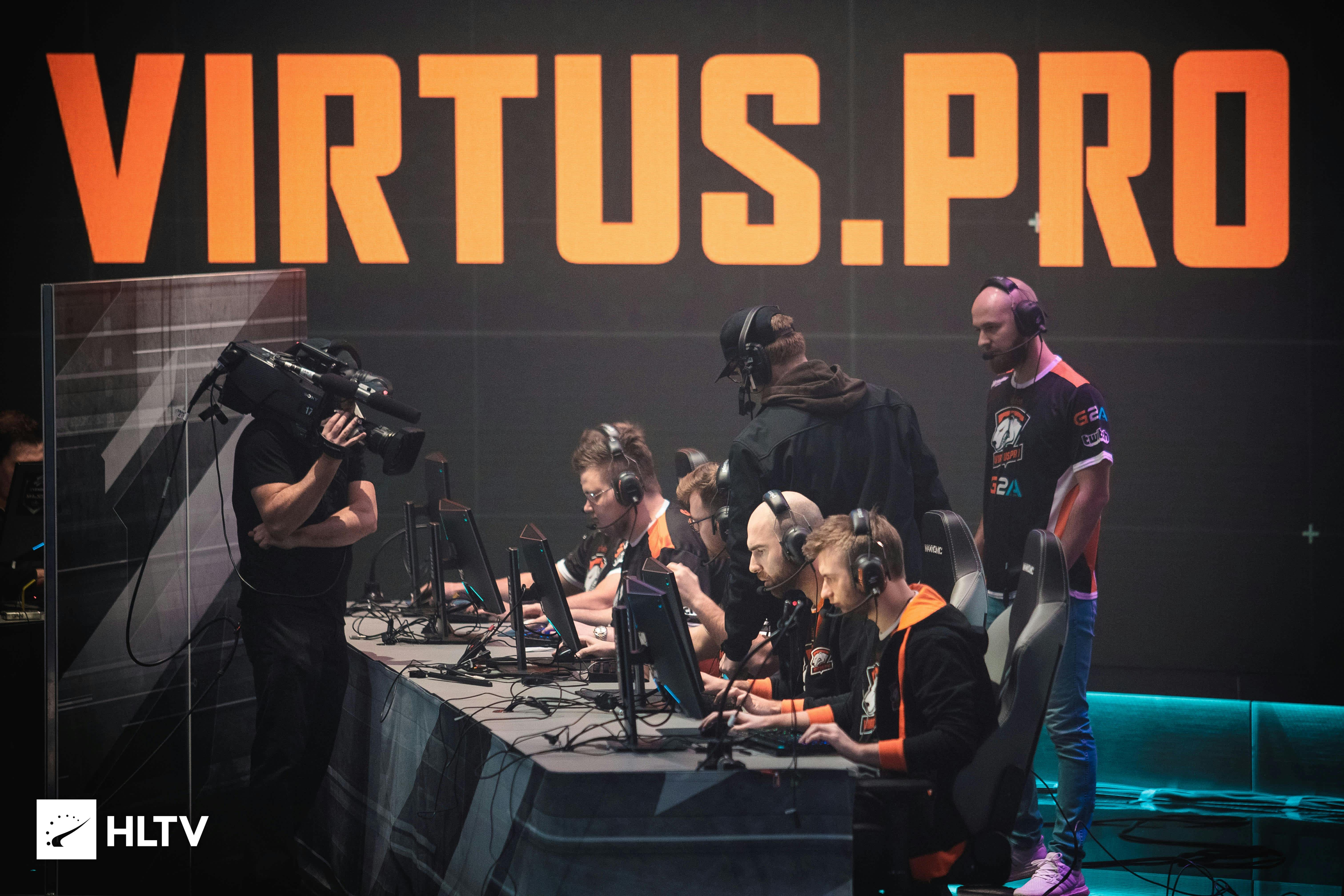
In many ways, Boston would mark the end of it all. VP would post decent enough results after their EPICENTER epic to keep fans’ hopes up, finishing second behind Renegades at a StarLadder i-League invitational despite beating them in the group stage. A few online events of low importance wouldn’t prepare anyone for the humiliating exit at the major that would follow. 0-3, taking three, six and seven rounds respectively. It was clear that the once world-conquering roster was finished for good.
At the time, you could look for caveats. Fnatic were certainly better at the time, yes, and Cloud9 did eventually go on to win the whole damn thing. However, VP had quite the spell over the Americans up until that point, conjuring up wins out of nowhere against them even during their worst slumps. Their straightforward defeat to them really felt like the end of an era – a whimper instead of a bang, a final silent fall from grace signified by their catastrophic opening-game performance against Quantum Bellator Fire. In London, they would go on to completely fall out of the major circuit, pasha only getting a chance to touch the Katowice trophy as an honored guest rather than a competitor. As it turns out, heroes are mortal too – just ask Gilgamesh. Not even the greatest champions can defy sleep.

